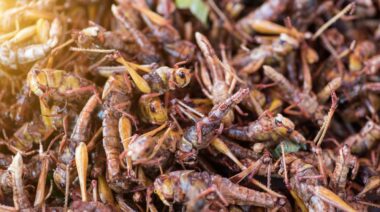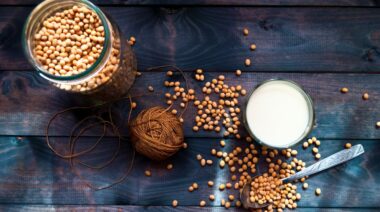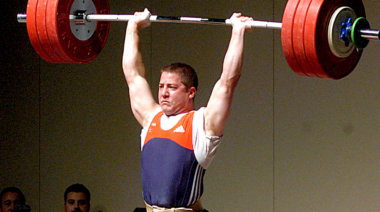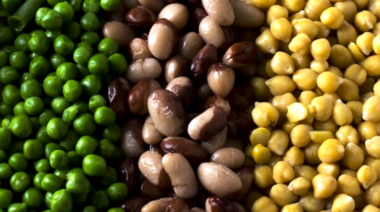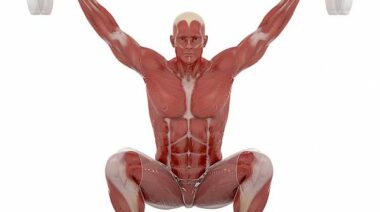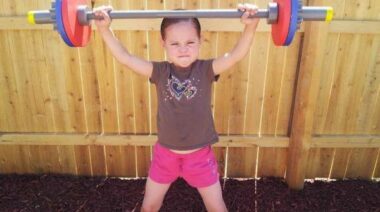Entomophagy, the consumption of insects, has recently seen a surge of interest as an alternative sustainable source of protein. A recent research study conducted by the U.N. Food and Agriculture ... Continue Reading
Meditation Needs to Make a Comeback
We get so busy sometimes that we forget to focus on our health. So, we frantically look for ways to fix any issues like weight gain or a doctor visit that didn’t go well. Sometimes, taking a deep breath is ... Continue Reading
Unravelling the Urban Myths of Soy Protein
A recent study, published by the Journal of the American College of Nutrition, was conducted to better understand the connection between production of estrogen and the consumption of soy and whey protein ... Continue Reading
The Socioeconomics of Western Diets and Obesity
The U.S. is no longer alone in being concerned over the rising obesity rates. In 2013, Mexico's obesity rate surpassed the United States. Between 2013 and 2014, concern over obesity in India rose to the ... Continue Reading
This Protein May Keep You Lean on Any Diet
Recently, Gladstone Institute researchers have discovered an unlikely mechanism involved in the storage and utilization of body fat, called P75 neurotrophin. This protein might even reduce or eliminate the ... Continue Reading
Runner’s High May be an Evolutionary Adaptation
The benefits of physical activity and exercise on the human brain have been widely reported. In particular, it’s increasingly clear that aerobic activity has positive benefits on mood and cognition, even ... Continue Reading
Fitness in Youth May be a Predictor for ALS in Later Life
ALS, also known as Lou Gehrig's disease and formally known as amyotrophic lateral sclerosis, is a specific disease that causes the death of neurons that control voluntary muscles. Symptoms of ... Continue Reading
Regular Exercise Protects Against Occasional Over-Eating
Here come the Holidays, and many of us are looking forward to big family dinners, holiday parties, and special meals. It’s not just one day of indulging, it’s really a season. Lots of folks will enjoy at ... Continue Reading
Elite Athletes May Have Brains that Match Their Bodies
Recent evidence suggests that elite athletes tend to have faster, more efficient brains than non-athletes. Frontiers in Psychology published the results of the study, which was designed to investigate a ... Continue Reading
Soy-Dairy Protein Blends May Increase Muscle Mass
According to a recent study published by the Journal of Applied Physiology, consumption of a blend of soy and dairy proteins after resistance exercise is advantageous for building muscle mass. This ... Continue Reading
Eating Pulses Can Reduce Your Eating Impulses
New research shows that eating beans, lentils, dry peas, and chickpeas – also called “pulses,” can result in modest weight-loss by reducing your appetite. This research also indicated that consuming daily ... Continue Reading
Accepted Post Workout Protein Dosages May Be Too Low
In new research that is bound to create antipathy in some quarters, health and exercise scientists from Scotland's University for Sporting Excellence discovered there was no discernible difference in ... Continue Reading
Caffeine Can Reduce Muscle Soreness
Some of the most common questions coaches get from trainees are in regards to Delayed Onset Muscle Soreness (DOMS), the muscle pain you get following a workout. Of particular interest is how to make it ... Continue Reading
Better Muscle Beats Other Muscle
Our stamina comes from our ability to produce energy efficiently over a period of time. In our muscles, energy production comes courtesy of mitochondria. The more mitochondria we have, the longer we can ... Continue Reading
Sleep Debt Accumulates Quickly
I’m always on alert for new sleep studies. I find that sleep is a major roadblock in nutrition and fitness. I recently discussed how sleep can change hunger levels, but it can also put us at risk for ... Continue Reading
Scientists Seek Optimal Training & Diet Combo
Researchers focusing their attention on finding the path to simultaneously gaining muscle and losing fat have published a new study out of McMaster University1 This study sheds new light on the link ... Continue Reading
Canola Oil In Your Diet Reduces Abdominal Fat
A research study1 out of Penn State looked into the effects of canola and high-oleic-acid canola oils on abdominal fat mass in a diet administered over 4 weeks. The subjects were men and women between ... Continue Reading
A Yoga Legend And The Infamy of Million Dollar Sperm
Sometimes people don’t know when to stop. That may be the case of the man who has come to embody the worst of the “yoga industry,” Bikram Choudhury. Bikram was teaching in Japan in the 1970s. It was here ... Continue Reading
Soccer’s 2 Mile Sprints Are Brutal
The National Women's Soccer League (NWSL) has a pay cap of just $37,800 per player. That's compared to an average of more than $300,000 for men's Major League Soccer. Furthermore, NWSL has a salary ceiling ... Continue Reading
Want to Perform Better? Eat Your Greens
A study1 out of the University of Leuven in Belgium, published in Frontiers in Physiology, tested 27 moderately trained subjects. The subjects were given nitrate supplement capsules in low oxygen, hypoxia, ... Continue Reading
Resistance Training Plans Might Be Superior to HIIT For Kids
When creating the strength and conditioning routines of children it’s of paramount importance to ensure a healthy, and maximally productive program. Kids’ bodies are still in development, and they have ... Continue Reading
Your Muscles Work Better At Certain Times of Day
New research1 out of Northwestern Medicine has discovered that circadian clocks in muscle tissue control the muscle’s metabolic response and energy efficiency meaning that the muscles reactions differ ... Continue Reading
Ice Your Workout Water For Better Performance
Research1 from the University of Montana addresses the connection between fluid volume and fluid temperature during workouts in the heat. The study, published in Wilderness & Environmental Medicine, ... Continue Reading
Big Finger; Big Athlete?
Apparently, it is common knowledge that adults whose index finger is shorter than their ring finger were exposed to greater amounts of testosterone when they were in the womb. Carl Pintzka, a medical ... Continue Reading

